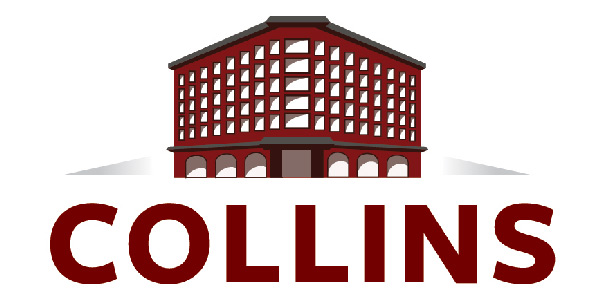Article Published by the SouthCoast Business Bulletin
The Right Fit
By Beth Perdue
Posted Jul 20, 2012 at 4:02 PM
Updated Jul 20, 2012 at 5:08 PM
Fall River mills have become such a big part of Kelley Collins life, and she in theirs, that it’s hard to imagine the Upton native did not grow up in their shadow.
FALL RIVER — Fall River mills have become such a big part of Kelley Collins life, and she in theirs, that it’s hard to imagine the Upton native did not grow up in their shadow.
Collins has worked in commercial real estate in the SouthCoast region for 30 years, successfully connecting mills and tenants, negotiating building sales and leases, and generally championing business in the city. In her career, the Bridgewater resident has sold everything from churches to gas stations, mills to office buildings, and mixed- use properties to industrial park buildings, and is one of only a few women who have opened their own commercial real estate firms in the region.
But in 1983, Collins was still a Stonehill College psychology major who had never been to Fall River and knew little about its textile history or the once thriving 100-plus mills there. She also knew nothing about real estate.
Collins first came to the city when a Stonehill professor asked for her help with a marketing study analyzing retail outlets as a possible reuse option for mills.
“Initially, I didn’t even know where Fall River was,” Collins recalled about the moment. “I don’t think I had ever been in a mill prior to coming down to Fall River.”
But the city, its mills and its people, made a quick impression on the young college grad and when she got offered a job at Durfee Union mills, overseeing property management for dozens of tenants, she took it. There Collins discovered she had a passion for real estate, learning about businesses, helping them get their space needs met, and watching them grow.
“I think I got passionate about the area quickly, way back in my Durfee-Union days once I got a sense of Fall River,” she said. “A lot of people don’t recognize that we still have a lot of strong manufacturing in the area. There’s less, and we’ve lost a lot, but there’s still a lot of great manufacturing here.”

Over the years Collins has placed hundreds of tenants, many of them in mill spaces, sometimes working with the same business two or three times as its needs changed. Her reach picked up 13 years ago, when she made the decision to open her own business and discovered the unexpected benefit of being able to help others make similar starts.
“Because I started (a business); I love to see (other) people start,” said Collins. “To watch someone take a step, to take that move that you took and visit them five years later and they need more space, or they’re ready to buy their own building is great.”
“I mean it’s always good to work with the businesses who are successful,” she added. “But it’s great to watch someone start and get up and get running.”
Some of Collins’ sales highlights over the years include helping John Matouk & Company locate and purchase their 37,000 square-foot building in the Fall River Industrial Park in 2005. For that sale, Collins worked with CEO George Matouk for about a year to find the right space. She later also helped Matouk purchase an adjacent property for future expansion.
Collins also helped Book Enterprise CEO Jason Zutaut buy his first mill building in early 2012 after Zutaut decided to make the switch from leasing to owning. Zutaut credited Collins with not only finding the best building for his business but also helping him see future revenue opportunities at the site.
“When I walked in the first floor, I said this is it. This place is awesome,” Zutaut said about the mill purchase. ”(Kelley) was really helpful.”
Working with businesses like Book Enterprises includes trying to understand what owners are looking for, Collins said.
“It’s not exactly the same as buying a house,” she said. “The commercial side is more precise, but you still have to have a feel for what area (the business owner) is trying to be in; what their needs really are; what their loading needs are; and what they’re really trying to accomplish. Are they really wanting to buy a building or are they just wanting to still lease like Jason?”
While Collins has helped many businesses at key moments in their histories, she credits Paul Burke, co-owner of Hadley Insurit Group, with helping her make the leap from employee to owner. At the time, Collins was interviewing with other companies, but despite being pregnant with her third child, with girls ages 8 and 10 at home, and in a struggling marriage, she decided to give it a try.
′′(He) said, ‘Don’t leave the city. I’ll give you a desk. I’ll give you a phone line. Open your own business first,’” she said.
Burke knew Collins from working with her on an insurance plan for Durfee Union mills. He was certain she could succeed, he said; so certain he offered her space in his building to work from. Thirteen years later, Collins still shares office space with HIG.
“I didn’t have any question in my mind that she could do it,” said Burke. “I mean, it was quite obvious that she knew her stuff. She was great with contracts and she could do the sales part of it because she was filling up Durfee Union mills all the time.”
Collins, he said, also had a stellar reputation on which to build.
“She was very upfront, very honest, and wanted everything to be exact”»She had a great reputation amongst the contractors that she worked with. The owners of the mill building loved her and I kept saying to her, ‘Why don’t you just go out on your own?’”
Burke told Collins, ”‘If it doesn’t work you can always go work for someone else in a year, but if it works you’ll never regret it.’”
And she hasn’t.
Within a year, Collins said she knew she could make the business work. Within half a decade she was getting outside recognition for her success.
Officially started in 1998, Collins’ firm, Collins Commercial Real Estate, was recognized by Co-Star Group in 2003 and 2004 as one of Boston’s Top Power Brokers and in 2004, Collins received individual honors from the same group.
Initially, Collins struggled to learn new aspects of the job, particularly contracts and commissions, and worked hard to balance her new business and home life. She also discovered some unexpected obstacles to being a woman-owned firm in a male-dominated industry.
“One of the most comical questions I get, that I’ve learned to adjust to, is, ’Can I speak with your father?” she said, laughing. ”(They’ll ask) is this a family business? Is this your dad’s business?”
Some callers also assume Collins is a man, based on her first name. But Collins said the assumptions don’t bother her.
“Now it doesn’t matter; it just gives you a little twinge,” she said. “But it’s also a really great thing to be able to say, ’No, this is my business.”
She’s also proud of the example she has set for her daughters.
“Probably any one of my kids could lease a space,” she said, noting how many times they’ve heard her negotiate deals from home. “I think they watch your work ethic. I think a lot of what you do when they’re growing up rubs off on them.”
And that’s important.
“The biggest reason I do what I do is a passion for my kids. Their future and their happiness are more important than anything,” said Collins. “It’s good for them to see an independent mom. My two older ones are very much workers. They both graduated (from college) and they’re both out working full-time, very independently.”
Collins should know about parental influence, she grew up watching her dad run a heating and plumbing business next door to the family’s Upton home. She remembers answering phone calls for him on his business line.
“My dad treated people honestly and fairly and I think that rubs off on you. I watched my dad go out in the middle of the night if an elderly person didn’t have heat,” she said, adding that he frequently worked six or seven days a week, especially in tough times.
Collins’ dad also passed on some business tips that Collins has benefited from including the importance of trust in business relationships and a few lessons about saving for a rainy day.
“His biggest thing was always save for a rainy day, always play it safe, always put money aside; always reinvest in your business which was good advice,” she said.

